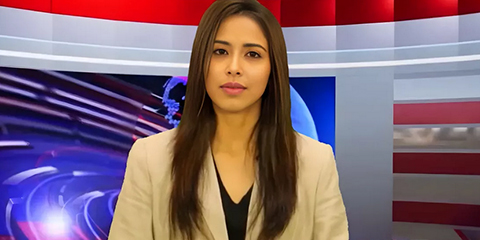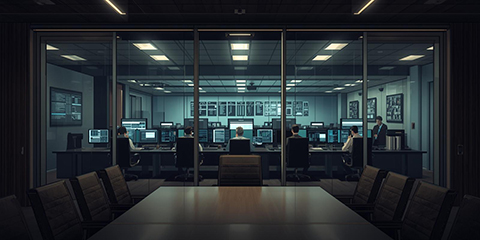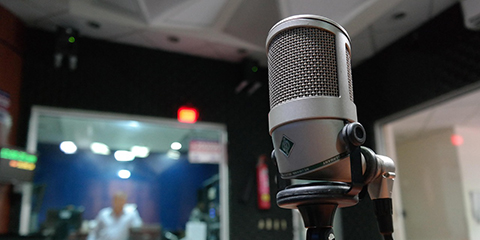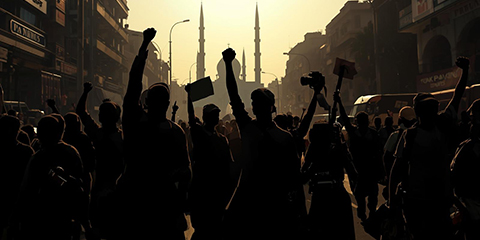Journalism without boundaries: The growth of unqualified news anchors in Pakistan
JournalismPakistan.com | Published 7 years ago | By Hassan Gillani
Join our WhatsApp channel
You cannot practise medicine without passing MBBS. You cannot be called a lawyer without completing LLB. You cannot qualify to be a professor if you have not completed PhD. You cannot even claim to be a professional chef unless you have undertaken certain cooking courses.
But there is one such profession in Pakistan that exempts you from all certifications, and you can influence the hearts and minds of millions of people without having the credentials to do so. Guess what? Professional journalism!
Since 2002, there has been a mushroom growth of private TV channels in Pakistan, and so has been the growth of so-called journalists-cum-news anchors-cum-analysts who neither had a background in practical journalism nor a formal academic qualification.
A look at the current media landscape would reveal many such individuals who directly swooped in on TV channels as Mr. or Ms. ‘Know it all’.
Whether you are a non-practising medical professional, a former actor, a failed fashion model, a struggling radio jockey, a junior banker, a mediocre lawyer, journalism can be your cup of tea. Especially if you are aspiring to be a political talk show host, and speak on the most sensitive matters related to national integrity and security. And do not worry if you do not have a strong grip over these issues. The less you know, the more you can speak. No law, no force, no authority can stop you.
Unlike medicine, law, banking or engineering where you can face serious legal action for practising something that you are not qualified for, journalism entails no such consequences.
Interestingly, the direct landing of so-called journalists as news anchors into TV channels seems to have changed the entire dynamics of this profession, which clearly appear in conflict with the set rules or norms of journalism being practised the world over.
Let’s look at some of the examples; A noted female news anchor who apparently works harder on her hairstyle and makeup than the content, in a TV interview asked ex-CM Punjab Shahbaz Sharif: “I am feeling very bad about asking you such a question, it really pains me. But I have to ask, is it true that there are differences between you and your baray Mian sahib, your brother”?
Journalism the world over has certain ethics, which define the way questions are to be phrased during an interview. A journalist or a news anchor is never supposed to get carried away, empathize or lose a grip over his/her emotions.
Let’s look at another example, a male news anchor who seems to be working harder to module his voice (perhaps to sound impressive) than anything else, in an interview with ex-President Asif Zardari constantly refers to Mr Zardari’s sister as his own sister. In which part of the world does a journalist or interviewer draw such biological connections?
In 2004, while covering the tsunami in Aceh, Indonesia, BBC award-winning correspondent Ben Brown famously ‘hugged’ a grieving woman who’d lost all four of her children and her home. In reality, it was barely a hug, more of a comforting gesture. Nevertheless, it raised much controversy about the ethics of journalism. Questions were asked: Should he or shouldn’t he have hugged? Where do you draw the line? Ben Brown has always defended his actions.
Historically, journalism in Pakistan has seen some great journalists who did not have a relevant degree in the profession. In fact, some of these figures did not have any degree at all. Yet they emerged as great journalists. How come? They invested time to learn journalistic ethics and values and abided by them. And most importantly there were ‘gatekeepers’ as far as print media is concerned. Those who have studied journalism as a profession would know that gatekeepers are the news editors and sub-editors who filter each and every word written by a news reporter before it reaches the public. Anything found in conflict with a set standard of the profession is removed forthwith.
So, coming back to the topic, for all those out there who did not make the right career choices, or have not had much success in their chosen professions, can try their hand at journalism as journalists-cum-news anchors-cum-analysts-cum-experts on all matters. It is open to all.
The writer is a former correspondent for Voice of America and currently working as a journalism development practitioner with an INGO in Islamabad.

























